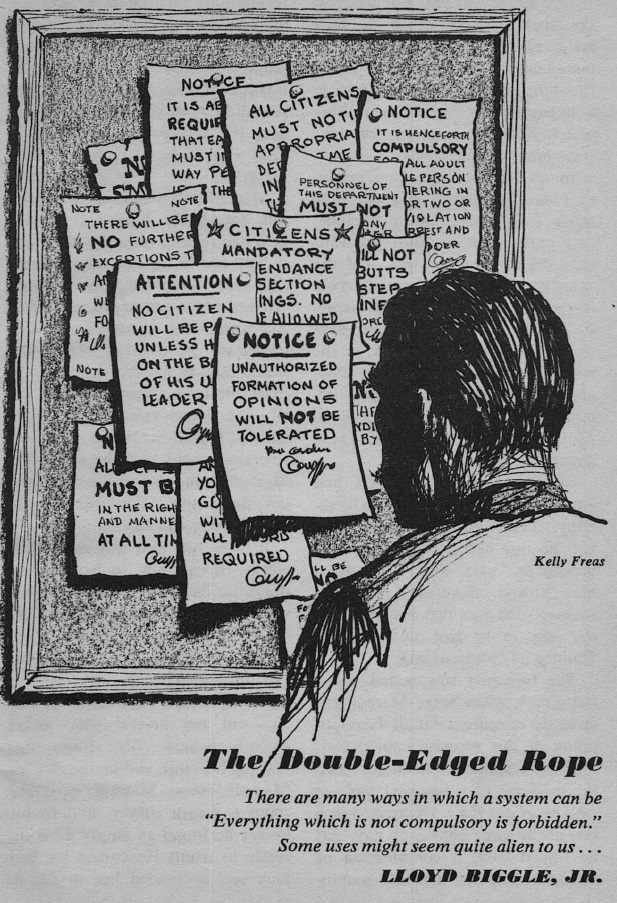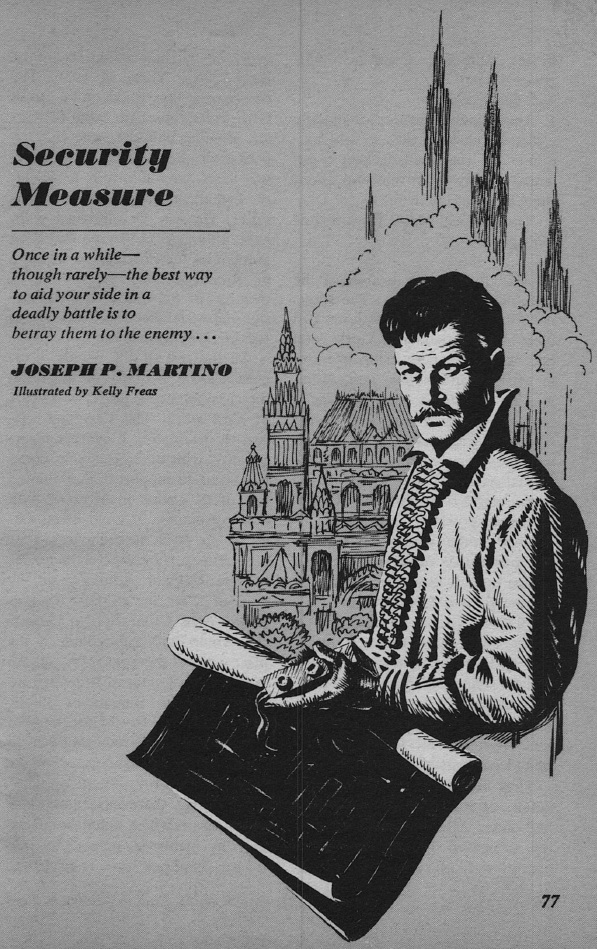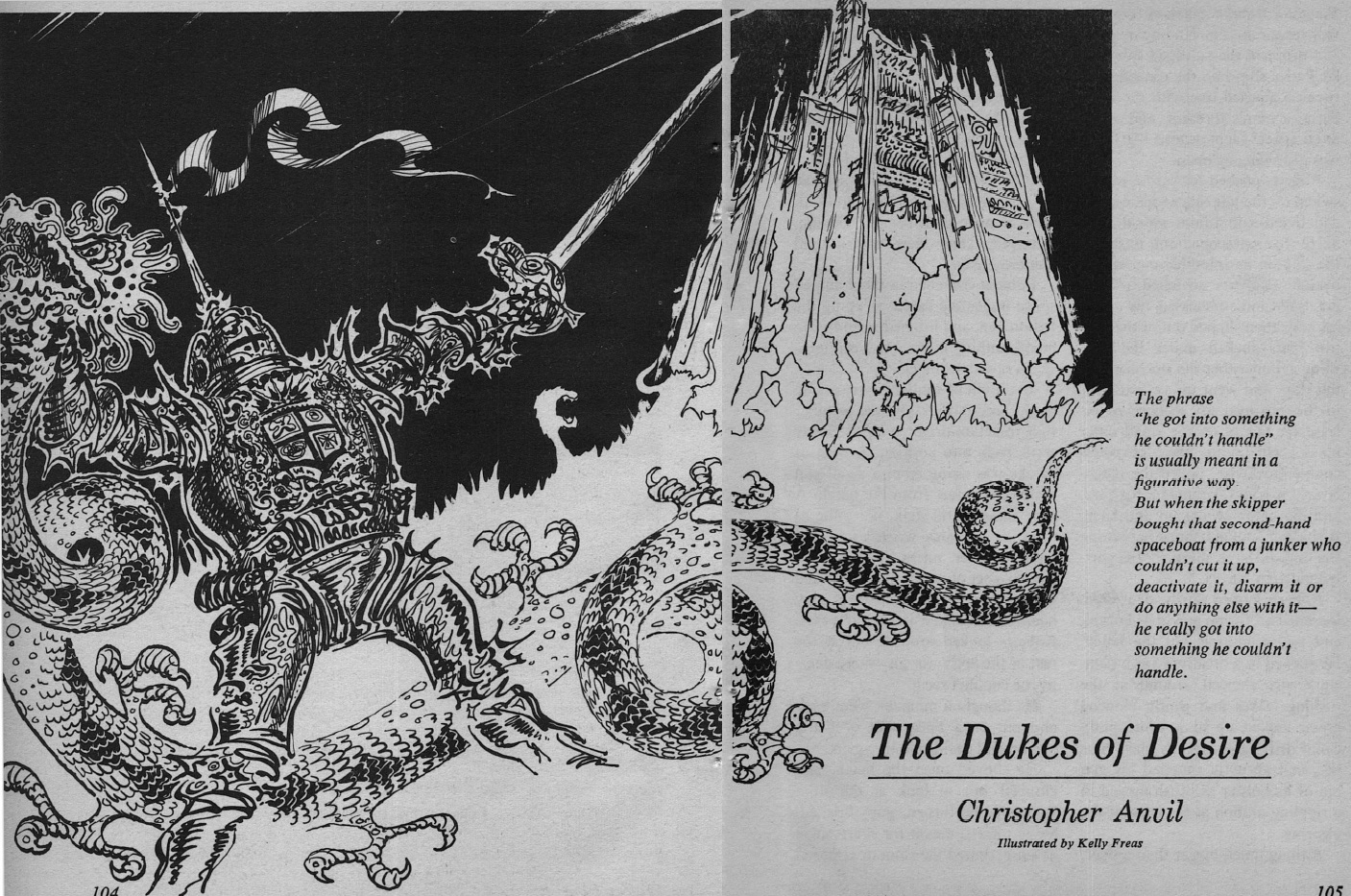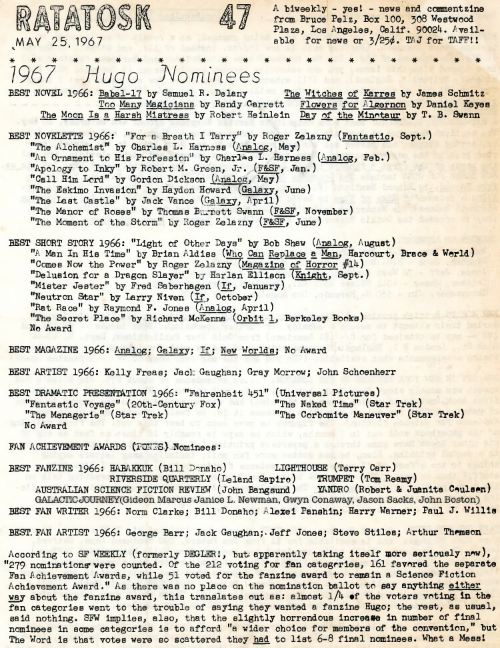
by Mark Yon
Scenes from England
Hello again!
The changes with New Worlds in the last few months have been so much that they’ve rather left me guessing what the next issue will be like. Will it be sexually adult, like last month’s issue? Will it introduce me to art and artists I’ve never heard of before? Or will it try to flummox me with philosophy, religion and science?
Who knows? Each issue has been one of surprise and bewilderment, with, as I suggested last month, less emphasis on the science fiction and more on those other elements. It certainly keeps me guessing!
And it is an anniversary issue, too! If you’ve been following what’s been going on here in the last year or so, many of us didn’t think we’d get to celebrating 21 years of New Worlds, but here we are – even if its publishing schedule has been a little erratic, admittedly. I am hoping that there is plenty to celebrate here.

Cover by Richard Hamilton
And with that in mind, let’s go to the issue!
Article: The Languages of Science by Dr. David Harvey
We seem to have given up any pretence of an Editorial now. We’re straight into a Science article, which discusses the importance of language in science, as “a theory … is a language for discussing the facts the theory is said to explain.”

Art from the article: Geometry is important!
It’s interesting in that science is usually considered (at least by me) as being unemotional yet here there’s an argument for the point that it is all down to how we use the language that is important. It also examines the question of whether the language of science is fit for purpose. Not a light read, but another one that makes you think. 3 out of 5.

More art that seems unrelated to the story it is in!
An Age (Part 1 of 3) by Brian W. Aldiss
Another month, another Aldiss – although this is the first part of a new serial. Here time travellers from 2090 spend time in the Cryptozoic. The past has become a destination for a myriad of unusual characters.
Artist Edward Bush describes what the place is like before the story brings in Ann, the girlfriend of motorbike gang leader Lenny. Bush has an affair with Ann and they decide to hop off to the Jurassic together. Before they leave, Edward finds himself being watched by a mysterious woman in black, about whom I suspect we will discover more in the next part.
This is different to the recent Aldiss stories published, although like many of his stories deliberately socially conscious. Also self-conscious. It feels rather like how a British writer believes they should write about a counterculture, with its casual sexual relationships and talk of drugs and mind-travel, but I must admit that I prefer this story to that of the recent Charteris series – at least so far. 4 out of 5.

An advert for the novelisation of this serial from this issue. However, be warned – there might be some future plot details here!
Article: A Fine Pop-Art Continuum by Christopher Finch

Art by Richard Hamilton
This month’s ‘artycle’, (I’ll keep saying it because I like it) examines the work of Richard Hamilton, an artist able to “distil from the idioms of the present a possible language for the future”. I was impressed by the range of work, from paintings to photography to models and even buildings, although much of this is prose trying to describe a medium that seems primarily visual. 3 out of 5.
Solipsist by Bob Parkinson
A quick check – for those who didn’t know, a solipsist is “a very self-centred or selfish” person (as it says in my English Dictionary.) I don’t know about you, but that immediately makes me think that this story is going to be one that spends its time gazing introvertly at itself. And guess what? It does. Lots of empty phrases and Words! With Exclamation Marks! that ape Alfred Bester’s novels from a decade ago. So, to paraphrase: Run! Go now! Avoid! 2 out of 5.
The Men Are Coming Back! by Barry Cole
And in the same manner, approach with caution. The magazine is still trying to bring poetry to the readership, which for me is a bit of a lost cause, frankly – though I hope that one day there will be something I like! At least this one is understandable, if enigmatic. It tells of what happens to a village of women on seeing their men return from somewhere. It casts mockery upon sexual stereotypes, I guess. 3 out of 5.

Illustration by Zoline
Camp Concentration (Part 4 of 4) by Thomas M. Disch
In this fourth and final part we see the culmination of Louis Sacchetti’s exposure to the Pallidine bug, and as expected it is not pretty. Sacchetti is now the last remaining prisoner of the inmates there in Camp Archimedes when he arrived, although there are new recruits brought in by Skilliman.
Haast, the prison director, is concerned by Louis’s realisation that Dr. Aimee Busk’s disappearance means that she is spreading the disease to the general public, and therefore within months 30-50% of the American public will be geniuses. The consequences of this is that all of those needed to stabilise society will die and society will collapse, something which Skilliman and his fellow recruits seem to be engineering. Louis’s attempts to make Haast see what is happening initially appear to be unheeded, and there are no signs in the news that changes are happening.
As a consequence of the infection, Louis eventually goes blind but is still able to type. Skilliman continues to taunt Louis. He maintains his friendship with Schipansky and Fredgren, two of Skilliman’s recruits, who despite Skilliman’s attempts to isolate Louis, manage to bring in more visitors. Louis also hallucinates discussions with people as well, such as Thomas Nashe.
At the end, things are resolved. Louis has a stroke, which paralyses him. One of Sacchetti’s visitors, Watson, leads a protest against Skilliman, which Louis is accused of instigating by Skilliman. When Skilliman tries to get Haast to shoot Louis ‘escaping’, he is shot by Haast. Haast then tells Louis that he is Mordecai Washington, who we thought died two parts ago.
It seems that Haast and Mordecai swapped bodies through secret equipment developed by the venereally-infected geniuses during their production of Faust. Louis is then transferred to the body of a guard he has continually referred to as Assiduous. They continue to search for a vaccine.
Frankly, this final part seemed to make more sense than the last, as it draws the story to an end. The last part was confusing – understandably so, admittedly – for its disjointed ruminations on disconnected issues, whereas this time around, Louis’s demise seems to create a more intensely focussed perspective. Although it was flagged up in part 2 of the serial, the ending seems a little bit of a cop-out, though, lacking conviction.
Nevertheless, on balance this is one of the most memorable stories I’ve seen in recent years, and certainly in New Worlds. It is a startling piece of work, although the impact of this has worn off a little since that initial first part. 4 out of 5.

Terrific artwork to illustrate the article on the brain.
Article: The Inconsistent Alpha by Dr. Christopher Evans
This month – and rather appropriate, given what has just happened in Disch’s serial – in his series of articles about the human body, Dr. Evans looks at the brain and brain waves, the alpha wave in particular. 4 out of 5.
The City Dwellers by Charles Platt
Do you remember Charles Platt’s story, Lone Zone which I reviewed back in the July 1965 issue of New Worlds? This one treads similar ground as it is set in a dilapidated city of the future. It’s the story of Manning and a group of fellow emotionless and exhausted characters who try to maintain their difficult existence. There’s fighting between gangs, military weapons on the streets and buildings set light to, as if life in the city wasn’t depressing enough. It’s fine, but nothing special. This one feels like a leftover, filling up a space without any importance. 3 out of 5.
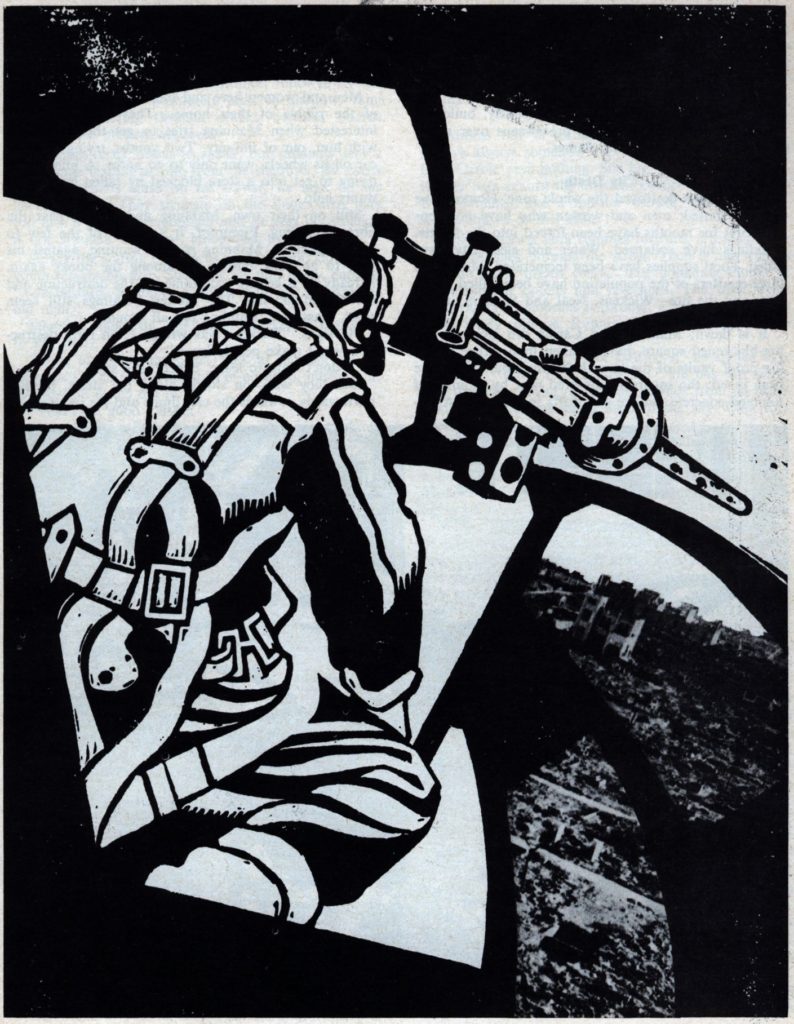 Yes: people are willing to go to war over Baked Beans!
Yes: people are willing to go to war over Baked Beans!
The Baked Bean Factory by Michael Butterworth
I have in the past felt pretty disappointed by Michael’s stories. So I am pleased that this is one I actually liked. It is basically a future-war story, where the combatants are all based on big corporate industries. So we have a Baked Beans company fighting rival corporations referred to as “The Enemy” in Image Warfare, all for the sake of dominance and greater profit. I was amused by this extreme extrapolation of corporate influence, even with its sudden and disappointing ending, but it makes a chilling prediction – could we see a future where big business runs everything? 3 out of 5.
Article: Reverie of Bone by Langdon Jones
 A page showing some of Peake's imaginative artwork.
A page showing some of Peake's imaginative artwork.
The Assistant Editor reviews the work of artist and writer Mervyn Peake, who you may know for his work Gormenghast. It shows an eclectic body of work, from art to poetry and prose, and hopefully will draw reader’s attention to his work. Peake may be a real version of Louis Sacchetti, a multi-talented genius. 4 out of 5.
 This illustration seems to sum up this odd story.
This illustration seems to sum up this odd story.
The Last Inn on the Road by Danny Plachta and Roger Zelazny
For me these days, just the appearance of the name ‘Roger Zelazny’ in a magazine is a pleasing one. His work generally shows a range, intelligence and depth that few reach, and I see him as at the vanguard of the American interpretation of the New Wave writers.
With that in mind, then, I think that this is the first collaboration of his I have read. I must admit that I found it a bit disappointing. There’s a satirical tone that seems to echo the mannerisms of Brian Aldiss, but overall this story about Hells Angel-type motor bikers who stop in a garage, murder a priest and a nun and then drive off seems pointless. The involvement of a dog and some celestial aliens are there too, for an unknown reason. Perhaps its meaning is just beyond me. A surprisingly low 3 out of 5.
Book Reviews
Thomas Disch this month expounds a lengthy article on the idea of Metropolises in culture and society, which is mainly focused on Oswald Spengler’s ideas in his book The Decline of the West and allows Disch to explain more about Faust, which partly helped me understand his relevance in Camp Concentration. Disch then goes on to review D. F. Jones’s novel Implosion as a story of a future Britain suffering from population decline, and a “moderately entertaining” collection edited by Douglas Hill named The Devil His Due.
The other reviews this month by James Cawthorn are for the “indescribable” The Ganymede Takeover by Philip K. Dick and Ray Nelson, Edmond Hamilton’s "colourful" Starwolf and Poul Anderson’s The Trouble Twisters, which manages “a smooth blend of science and adventure that few other authors can achieve with such consistency.”

Read some of the biographical details carefully. A poetry magazine entitled "Ronald Reagan", after that film star? Really?
Summing up New Worlds
I’m pleased to read much more fiction this month, and it is of a greater variety. The Disch ends on a bit of a deux ex machina, but is still good, Aldiss continues to produce well written work, and I liked the Peake article. I was pleasingly impressed by the Butterworth story, up to the unimpressive end. The Platt story was OK, but the Zelazny was a disappointment and felt like a minor work, even if competently written.
All in all, not a bad issue, unless you wanted to argue about the imbalance in the new New Worlds between art, articles and fiction.
But, in short, it feels like a stronger issue than the last, and worth me giving my money to. Not quite as much to celebrate as I had hoped for, but c'est la vie.

And speaking of celebrating anniversaries, I was surprised at how little the magazine’s 21st anniversary was mentioned, other than on the front cover and a tiny box in the Wanted columns.
Although the magazine claims that it is more about looking to the future rather than the past, to me it feels a little like the opposite – almost like the magazine is ashamed of its heritage.
I’m sure that it’s not – and I am pleased that they’ve not seen the occasion as a time to fill the magazine with reprints – but I would have liked a little more reference, I think. After all, 21 years of publication, even if they have been a little "stop-and-start", is quite an achievement for a British science fiction magazine.
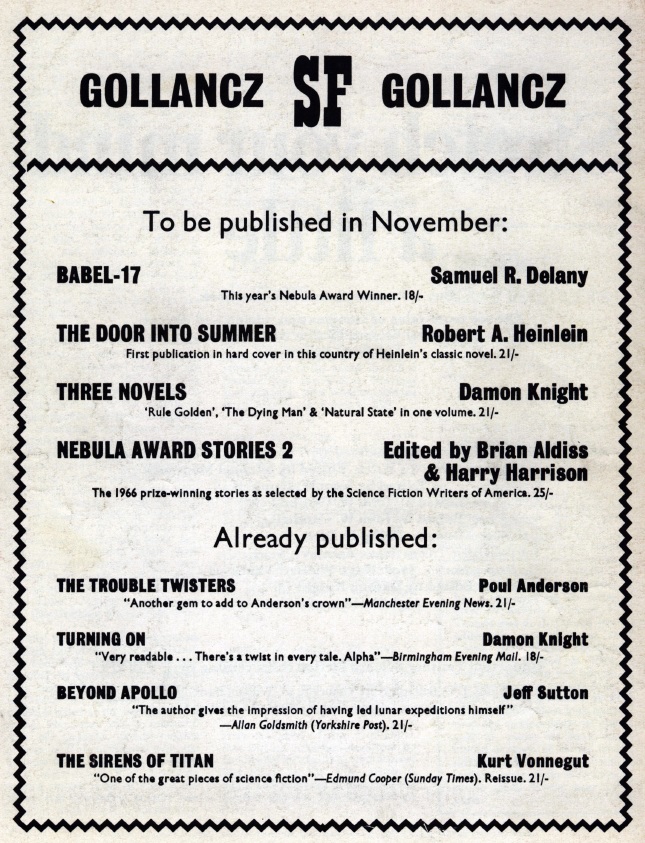
No advert for next month's issue, worryingly. Instead, some books to look forward to.
Until the next!

![[September 26, 1967] Anniversary? Really? <i>New Worlds</i>, October 1967](https://galacticjourney.org/wp-content/uploads/2022/09/NW-October-1967-672x372.jpeg)

![[September 2, 1967] Of Genies and Bottles (October 1967 <i>IF</i>)](https://galacticjourney.org/wp-content/uploads/2022/08/IF-Cover-1967-10-672x372.jpg)

 William C. Foster, the chief American representative to the Eighteen Nation Committee on Disarmament.
William C. Foster, the chief American representative to the Eighteen Nation Committee on Disarmament. The art is intriguing, but none of this happens in Hal Clement’s new novel. Art by Castellon
The art is intriguing, but none of this happens in Hal Clement’s new novel. Art by Castellon![[August 26, 1967] The Shock of the New II – Sex and the Modern British SF Reader <i>New Worlds</i>, September 1967](https://galacticjourney.org/wp-content/uploads/2022/08/New-Worlds-cover-Sept-67-672x372.jpg)








![[August 2, 1967] The Bounds of Good Taste (September 1967 <i>IF</i>)](https://galacticjourney.org/wp-content/uploads/2022/07/IF-Cover-1967-09-672x372.jpg)
 President de Gaulle with foot firmly in mouth.
President de Gaulle with foot firmly in mouth. This alien dude ranch has become a popular honeymoon spot. Art by Gray Morrow
This alien dude ranch has become a popular honeymoon spot. Art by Gray Morrow![[July 28, 1967] The Shock of the New – Rabbits, Hedgehogs and Kazoos (<i>New Worlds</i>, August 1967)](https://galacticjourney.org/wp-content/uploads/2022/07/NW-September-1967-672x372.jpg)









![[July 8, 1967] Family lines (August 1967 <i>Galaxy</i>)](https://galacticjourney.org/wp-content/uploads/2022/07/670710cover-672x372.jpg)





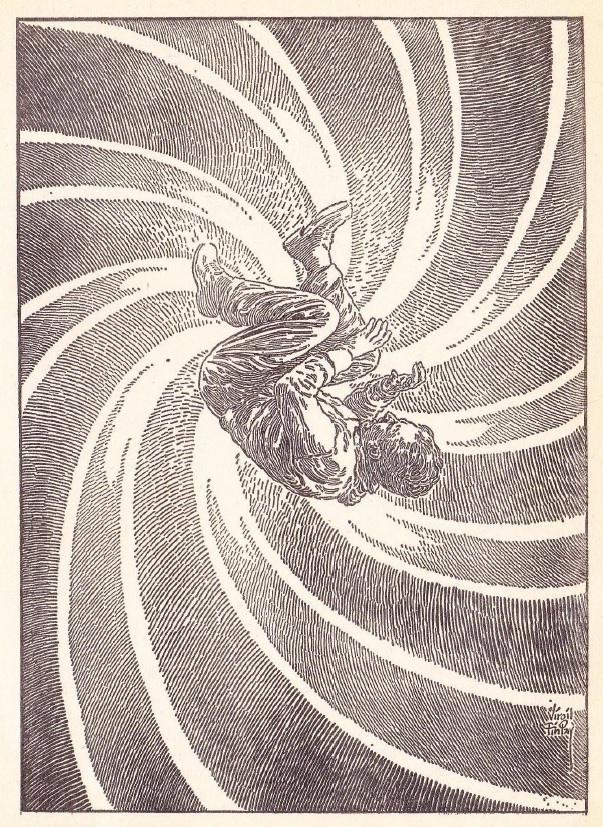






![[July 4, 1967] Angels and Demons (August 1967 <i>IF</i>)](https://galacticjourney.org/wp-content/uploads/2022/06/IF-1967-08-Cover-645x372.jpg)
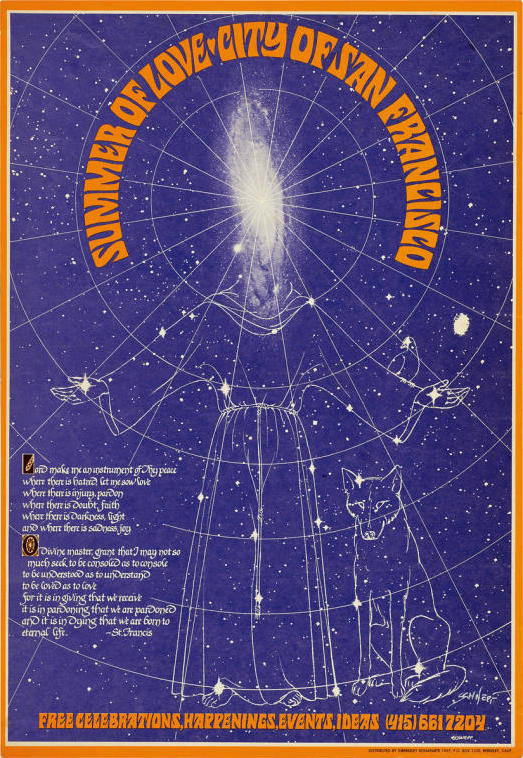 The official poster created by Bob Schnepf
The official poster created by Bob Schnepf The festival was delayed one week due to bad weather.
The festival was delayed one week due to bad weather. This poster is a good example of the new psychedelic art style.
This poster is a good example of the new psychedelic art style.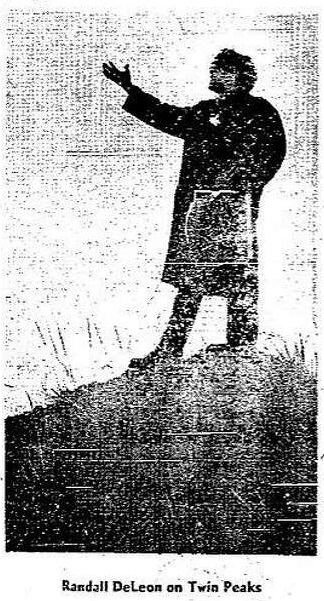 Hippie Randall DeLeon greets the sun and makes the front page of the San Francisco Chronicle.
Hippie Randall DeLeon greets the sun and makes the front page of the San Francisco Chronicle.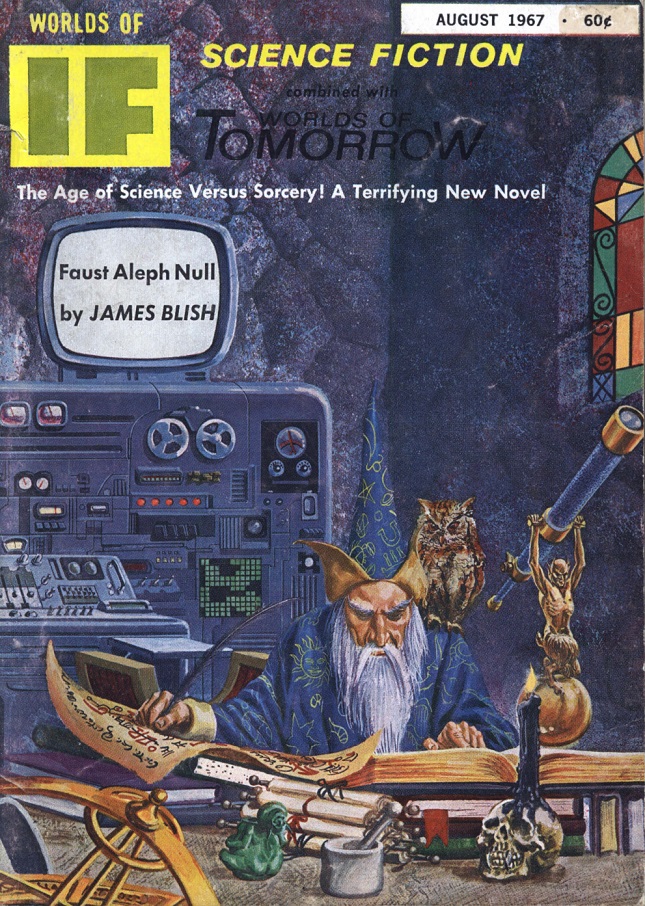 That’s not quite how black magic works in the new Blish novel, but it ought to be. Art by Morrow
That’s not quite how black magic works in the new Blish novel, but it ought to be. Art by Morrow![[June 30, 1967] Bad trip (July 1967 <i>Analog</i>)](https://galacticjourney.org/wp-content/uploads/2022/06/670630cover-672x372.jpg)



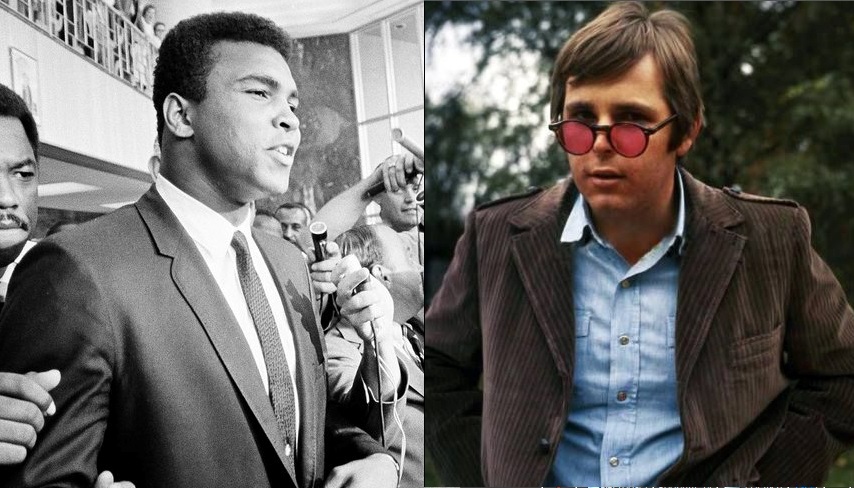


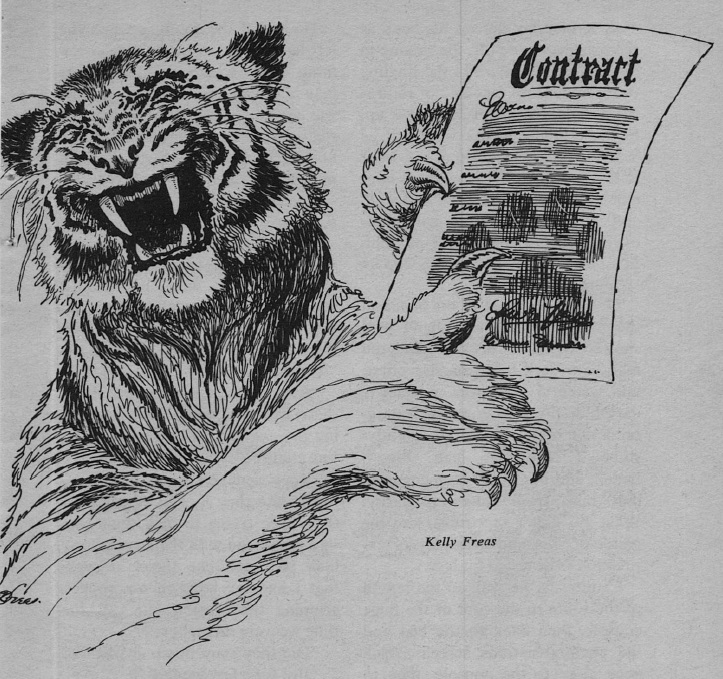



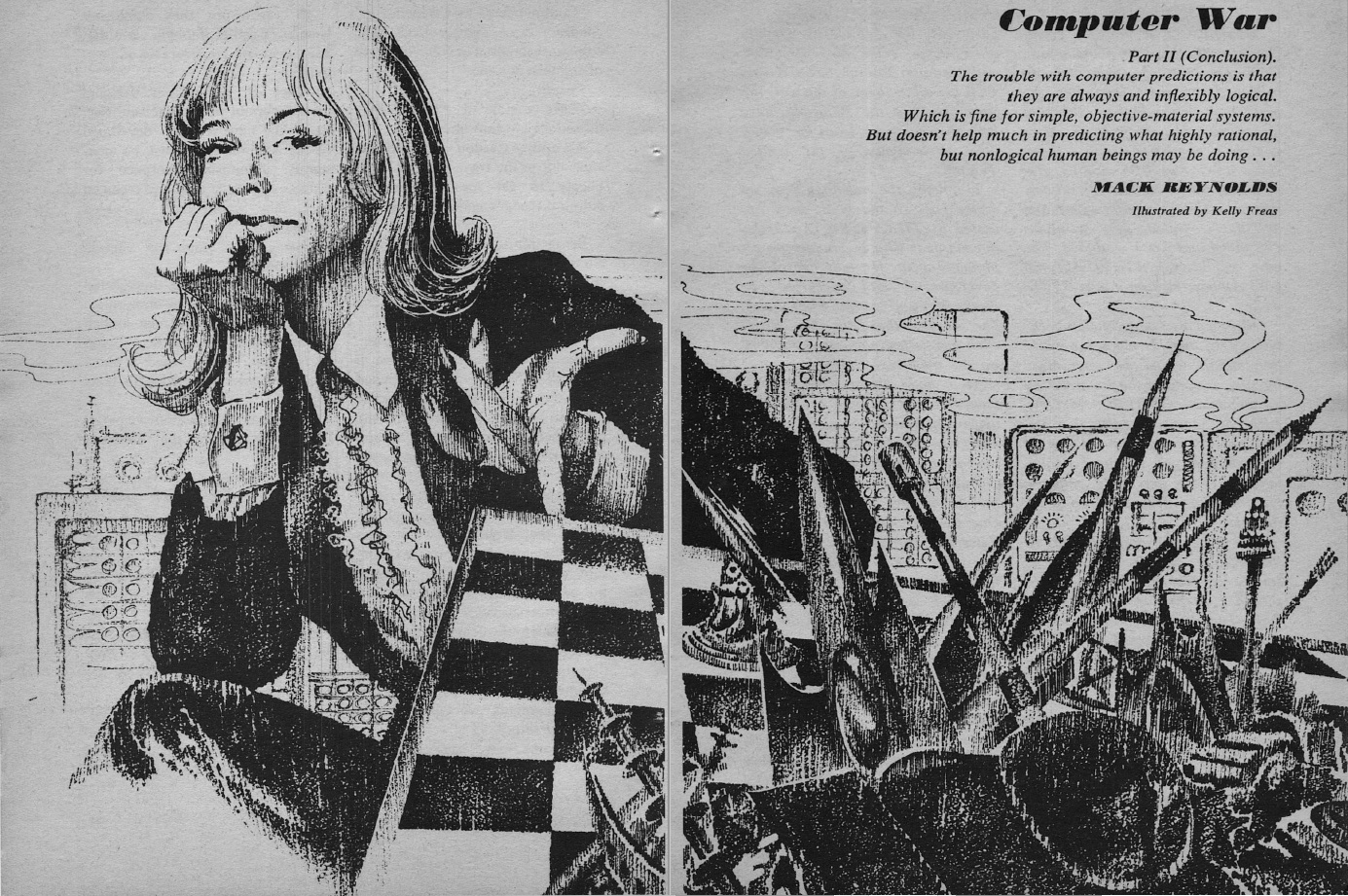


![[June 2, 1967] Uneasy Alliances (July 1967 <i>IF</i>)](https://galacticjourney.org/wp-content/uploads/2022/05/IF-Cover-1967-07-672x372.jpg)

 l.: Colonel Yakubu Gowon of Nigeria. r.: Colonel Odumegwu Ojukwu of Biafra.
l.: Colonel Yakubu Gowon of Nigeria. r.: Colonel Odumegwu Ojukwu of Biafra.  Joe Miller is the most fearsome warrior these vikings have ever seen. Art by Gaughan
Joe Miller is the most fearsome warrior these vikings have ever seen. Art by Gaughan![[May 31, 1967] Phoning it in (June 1967 <i>Analog</i>)](https://galacticjourney.org/wp-content/uploads/2022/05/670531cover-672x372.jpg)











